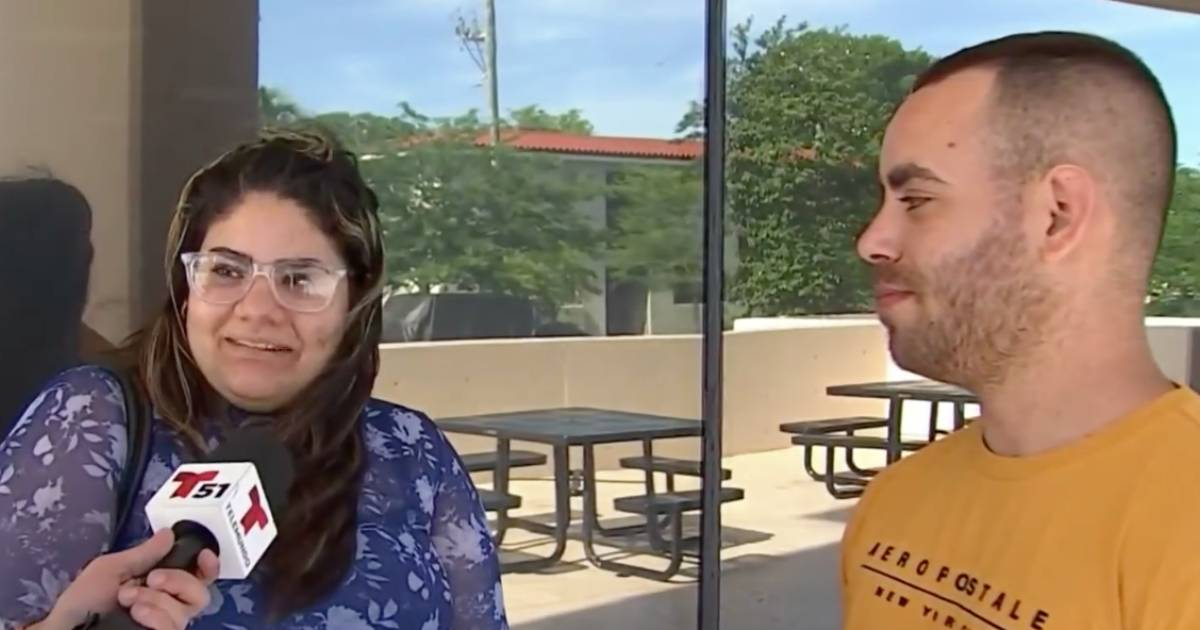Mario de León Díaz, a 26-year-old Cuban facing a deportation order, has been reunited with his pregnant wife Marien Acosta after being released by U.S. immigration authorities. The migrant, who held an I-220B document, was detained by ICE during a routine appointment and was scheduled to be deported on a flight to Cuba last Friday along with 54 other Cubans.
However, in a last-minute decision on Thursday, a request from the family's attorney, Eduardo Soto, for an emergency parole was approved, citing the delicate condition of the pregnant wife. "He no longer has to attend immigration appointments; we got that off our shoulders," said the young woman to reporter Javier Díaz, who shared the first images of the couple's reunion on Telemundo 51.
In statements to the journalist, the migrant expressed gratitude for the support from the Cuban community in Miami, which had campaigned for his release. Last week, Marien had pleaded for her husband's release to prevent the separation of their family. They now celebrate that everything turned out for the best, as more than half a hundred Cubans, mostly young and without criminal records, were sent back to Cuba last Friday.
Frequently Asked Questions about I-220B and Emergency Parole
Here are some common questions and answers about the I-220B document and emergency parole requests, particularly in the context of U.S. immigration procedures.
What is an I-220B document?
An I-220B document, also known as an Order of Supervision, is issued to individuals who have been released from ICE custody under certain conditions while awaiting further immigration proceedings.
What is emergency parole in immigration cases?
Emergency parole is a discretionary measure that allows certain individuals to enter or remain in the U.S. temporarily due to urgent humanitarian reasons or significant public benefit.
How can a family member request emergency parole for a detained migrant?
A family member can request emergency parole by submitting a formal application, often with the assistance of an immigration attorney, citing specific humanitarian reasons or other significant factors.
